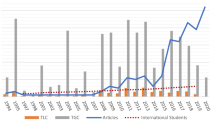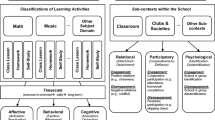Abstract
Motivation and a positive attitude play a decisive role in learning any foreign language. This study aims to investigate the motivation behind learning Chinese language in Central Asia and Russia and to identify the main problems related to mastering this language in those countries. The study draws on an anonymous questionnaire survey involving students and multiple oral interviews with Chinese language learners and teachers. The information was collected and analyzed manually by the researchers. The resulting statistical data was generated in Microsoft Excel and then presented as charts and tables. Through a student survey and teacher interviews, the study identified the long-term and short-term motivators for learning Chinese language, namely study (5%), cultural interest (7%), friendship (15%), cross-border communication (20%), travel intentions (25%), and greater employment opportunities (28%). The most common reason for learning the language was a desire to work in China (28%), and the least popular one was to study there (5%). Teachers defined motivation as a major challenge in teaching Chinese language (79%). According to teachers, learners with low motivation and unmotivated individuals are hardly responding to what happens in the classroom. The results of the study may be used as a platform for further research in education, teaching, psychology and linguistics.


Similar content being viewed by others
References
Agley, J., Tidd, D., Jun, M., Eldridge, L., Xiao, Y., Sussman, S., Jayawardene, W., Agley, D., Gassman, R., & Dickinson, S. L. (2021). Developing and validating a novel anonymous method for matching longitudinal school-based data. Educational and Psychological Measurement, 81(1), 90–109. https://doi.org/10.1177/0013164420938457.
Al-Mubireek, S. (2020). An Attitude/Motivation test battery (AMTB) of English language learning among students across genders, tracks and proficiency levels at a leading saudi university. The Asian EFL Journal Quarterly, 24(3), 26–50.
Ali, M. S., & Pathan, Z. H. (2017). Exploring factors causing demotivation and motivation in learning English language among college students of Quetta, Pakistan. International Journal of English Linguistics, 7(2), 81–89. https://doi.org/10.5539/ijel.v7n2p81.
Alizadeh, M. (2016). The impact of motivation on English language learning. International Journal of Research in English Education, 1(1), 11–15.
Alshenqeeti, H. (2014). Interviewing as a data collection method: A critical review. English Linguistics Research, 3(1), 39–45. https://doi.org/10.5430/elr.v3n1p39.
Anran, Y., & Refka, D. (2020). Teaching Chinese as a foreign language at universities in Russia and China. In Proceedings of the 12th All-Russian Research and Methodological Conference with International Participation, (pp. 387–394). Moscow Institute. https://doi.org/10.22363/09835-2020-387-394
Barov, S., Orlova, T., & Medvedev, Y. (2017). Regional studies in education of Russia and educational linguistic and cultural studies program on Chinese language. In EDULEARN17 Proceedings (pp. 758–765). IATED. https://doi.org/10.21125/edulearn.2017.1167
Cook, D. A., & Artino, A. R. Jr. (2016). Motivation to learn: An overview of contemporary theories. Medical Education, 50(10), 997–1014. https://doi.org/10.1111/medu.13074.
Csizér, K. (2019). The L2 motivational self system. The Palgrave Handbook of Motivation for Language Learning (pp. 71–93). Cham: Palgrave Macmillan. https://doi.org/10.1007/978-3-030-28380-3_4.
Darvin, R. (2019). L2 motivation and investment. The Palgrave Handbook of Motivation for Language Learning (pp. 245–264). Cham: Palgrave Macmillan. https://doi.org/10.1007/978-3-030-28380-3_12.
Darvin, R., & Norton, B. (2023). Investment and motivation in language learning: What’s the difference? Language Teaching, 56(1), 29–40. https://doi.org/10.1017/S0261444821000057.
Dörnyei, Z. (2020). Innovations and challenges in language learning motivation. Routledge.
Du, X., & Jackson, J. (2018). From EFL to EMI: The evolving English learning motivation of Mainland Chinese students in a Hong Kong University. System, 76, 158–169. https://doi.org/10.1016/j.system.2018.05.011.
Ellis, R. (2015). Creativity and language learning. In Creativity in Language Teaching (pp. 32–48). Routledge. https://doi.org/10.4324/9781315730936-3
Epstein, I. (2017). Chinese education: Problems, policies, and prospects. Routledge.
Ferlazzo, L. (2015). Strategies for helping students motivate themselves. Retrieved 6 October 2022 from https://www.edutopia.org/blog/strategies-helping-students-motivate-themselves-larry-ferlazzo
Gong, Y., Gao, X. A., & Lyu, B. (2020a). Teaching chinese as a second or foreign language to non-chinese learners in mainland China (2014–2018). Language Teaching, 53(1), 44–62. https://doi.org/10.1017/S0261444819000387.
Gong, Y., Ma, M., Hsiang, T. P., & Wang, C. (2020b). Sustaining international students’ learning of chinese in China: Shifting motivations among New Zealand students during study abroad. Sustainability, 12(15), 6289. https://doi.org/10.3390/su12156289.
Harvey, L. (2017). Language learning motivation as ideological becoming. System, 65, 69–77. https://doi.org/10.1016/j.system.2016.12.009.
Ivanov, V. L. S. Z. A. (2021). Axiological linguistics and teaching of russian as a foreign language in the context of distance learning against the backdrop of the pandemic. XLinguae, 1, 212–227. https://doi.org/10.18355/XL.2021.14.01.17.
Johnson, D. (2017). The role of Teachers in motivating students to learn. BU Journal of Graduate studies in education, 9(1), 46–49.
Lavrinenko, S. V., Arpentieva, M. R., & Kassymova, G. K. (2019). Motivation of technical university students and its impact on the effectiveness of the educational process. In AIP Conference Proceedings (Vol. 2135, No. 1, p. 020033). AIP Publishing LLC. https://doi.org/10.1063/1.5120670
Marashi, H., & Khatami, H. (2017). Using cooperative learning to boost creativity and motivation in language learning. Journal of Language and Translation, 7(1), 43–58.
Mayumi, K., & Zheng, Y. (2023). Becoming a speaker of multiple languages: An investigation into UK university students’ motivation for learning chinese. The Language Learning Journal, 51(2), 238–252. https://doi.org/10.1080/09571736.2021.1996621.
McBride, C. A. (2016). Is chinese special? Four aspects of chinese literacy acquisition that might distinguish learning chinese from learning alphabetic orthographies. Educational Psychology Review, 28(3), 523–549. https://doi.org/10.1007/s10648-015-9318-2.
Rahman, H. A., Rajab, A., Wahab, S. R. A., Nor, F. M., Zakaria, W. Z. W., & Badli, M. A. (2017). Factors affecting motivation in language learning. International Journal of Information and Education Technology, 7(7), 543–547. https://doi.org/10.18178/ijiet.2017.7.7.927.
Schuitema, J., Peetsma, T., & van der Veen, I. (2016). Longitudinal relations between perceived autonomy and social support from teachers and students’ self-regulated learning and achievement. Learning and Individual Differences, 49, 32–45. https://doi.org/10.1016/j.lindif.2016.05.006.
Seven, M. A. (2020). Motivation in language learning and teaching. African Educational Research Journal, 8, 62–71. https://doi.org/10.30918/AERJ.8S2.20.033.
Shiue, Y. T., & Chen, H. H. (2016). Detecting word usage errors in Chinese sentences for learning Chinese as a foreign language. In Proceedings of the Tenth International Conference on Language Resources and Evaluation (LREC’16) (pp. 220–224). Portorož, Slovenia. European Language Resources Association (ELRA).
Shum, M., Gao, F., & Ki, W. W. (2016). School desegregation in Hong Kong: Non-chinese linguistic minority students’ challenges to learning chinese in mainstream schools. Asia Pacific Journal of Education, 36(4), 533–544. https://doi.org/10.1080/02188791.2015.1005048.
Soderstrom, N. C., & Bjork, R. A. (2015). Learning versus performance: An integrative review. Perspectives on Psychological Science, 10(2), 176–199. https://doi.org/10.1177/1745691615569000.
Thohir, L. (2017). Motivation in a foreign language teaching and learning. Vision: Journal for Language and Foreign Language Learning, 6(1), 20–29. https://doi.org/10.21580/vjv6i11580.
Turabik, T., & Baskan, G. A. (2015). The importance of motivation theories in terms of education systems. Procedia-Social and Behavioral Sciences, 186, 1055–1063. https://doi.org/10.1016/j.sbspro.2015.04.006.
Ushioda, E. (2020). Language learning motivation. Oxford University Press.
Vinoy Vincent, T., & Kumar, M. S. (2019). Motivation: Meaning, definition, nature of motivation. International Journal of Yogic Human Movement and Sports Sciences, 4(1), 483–484.
Woodrow, L. (2017). Motivation in language learning. Essential competencies for English-medium university teaching (pp. 235–248). Cham: Springer. https://doi.org/10.1007/978-3-319-40956-6_16.
Xu, H. L., & Moloney, R. (2019). Motivation for learning chinese in the australian context: A research focus on tertiary students. The Palgrave handbook of motivation for language learning (pp. 449–469). Cham: Palgrave Macmillan. https://doi.org/10.1007/978-3-030-28380-3_22.
Xu, Q., & Peng, H. (2017). Investigating mobile-assisted oral feedback in teaching chinese as a second language. Computer Assisted Language Learning, 30(3–4), 173–182. https://doi.org/10.1080/09588221.2017.1297836.
Funding
This research did not receive any specific grant from funding agencies in the public, commercial, or not-for-profit sectors.
Author information
Authors and Affiliations
Corresponding author
Ethics declarations
Conflicts of Interest
This research has no conflict of interests.
Research Involving Human Participants
The study was conducted in accordance with the ethical principles approved by the Ethics Committee of Orenburg State University (Protocol No 2 of 13.09.2021).
Informed Consent
All participants were preliminarily invited by e-mail and agreed to participate in the experiment. Their personal data was not collected or used.
Institutional Review Board (IRB) Codes
The research was approved at the Department of General and Professional Pedagogy, Institute of Social and Humanitarian Innovations and Mass Media, Orenburg State University, Almaty, Kazakhstan.
Additional information
Publisher’s Note
Springer Nature remains neutral with regard to jurisdictional claims in published maps and institutional affiliations.
Rights and permissions
Springer Nature or its licensor (e.g. a society or other partner) holds exclusive rights to this article under a publishing agreement with the author(s) or other rightsholder(s); author self-archiving of the accepted manuscript version of this article is solely governed by the terms of such publishing agreement and applicable law.
About this article
Cite this article
Turkpenova, D. Motivation as an Axiological Factor in Learning Chinese. J Psycholinguist Res 52, 1559–1570 (2023). https://doi.org/10.1007/s10936-023-09963-2
Accepted:
Published:
Issue Date:
DOI: https://doi.org/10.1007/s10936-023-09963-2




